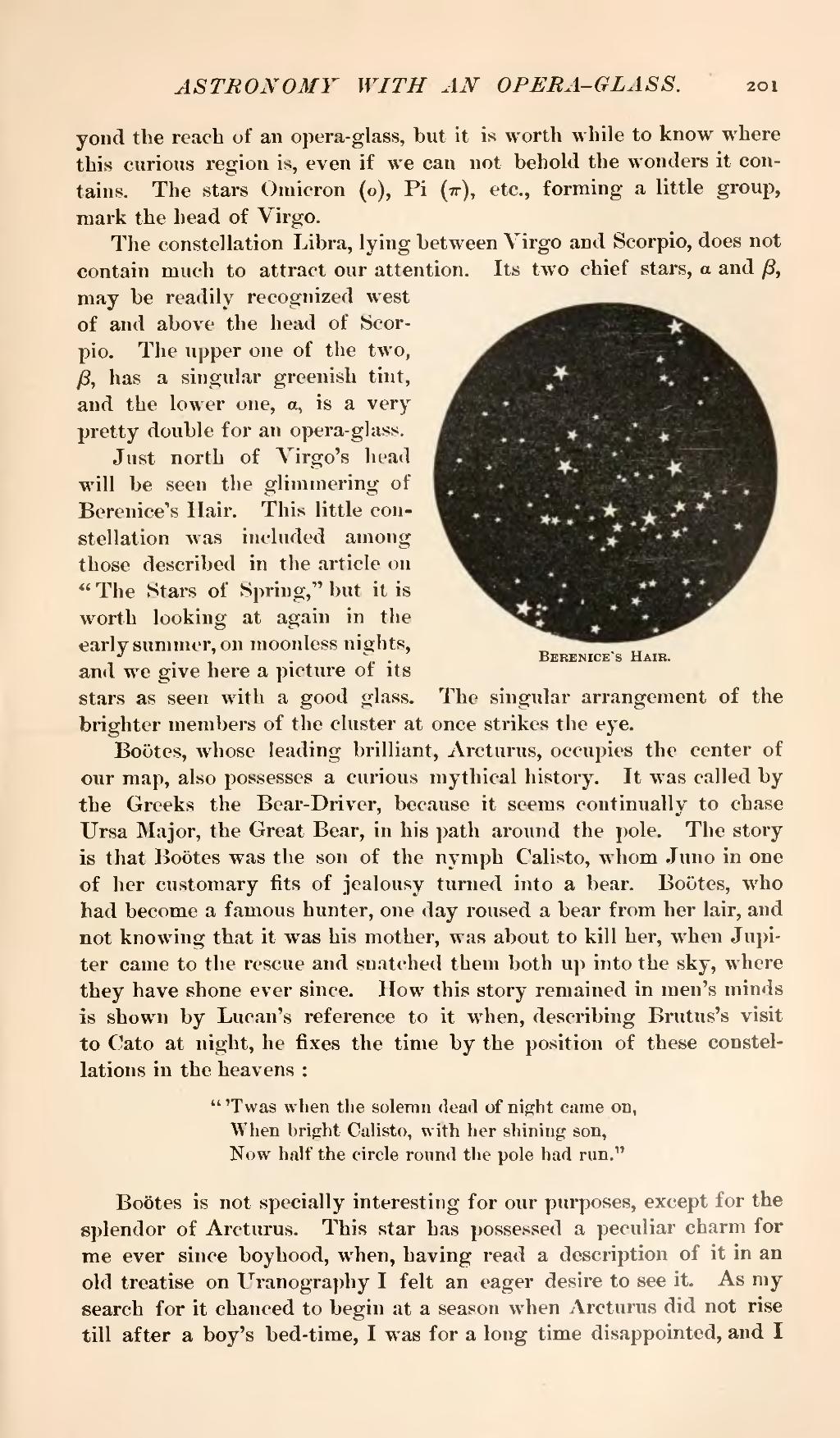yond the reach of an opera-glass, but it is worth while to know where this curious region is, even if we can not behold the wonders it contains. The stars Omicron (ο), Pi (π), etc., forming a little group, mark the head of Virgo.
The constellation Libra, lying between Virgo and Scorpio, does not contain much to attract our attention. Its two chief stars, α and ß,  Berenice's Hair. may be readily recognized west of and above the head of Scorpio. The upper one of the two, ß, has a singular greenish tint, and the lower one, α, is a very pretty double for an opera-glass.
Berenice's Hair. may be readily recognized west of and above the head of Scorpio. The upper one of the two, ß, has a singular greenish tint, and the lower one, α, is a very pretty double for an opera-glass.
Just north of Virgo's head will be seen the glimmering of Berenice's Hair. This little constellation was included among those described in the article on "The Stars of Spring," but it is worth looking at again in the early summer, on moonless nights, and we give here a picture of its stars as seen with a good glass. The singular arrangement of the brighter members of the cluster at once strikes the eye.
Boötes, whose leading brilliant, Arcturus, occupies the center of our map, also possesses a curious mythical history. It was called by the Greeks the Bear-Driver, because it seems continually to chase Ursa Major, the Great Bear, in his path around the pole. The story is that Boötes was the son of the nymph Calisto, whom Juno in one of her customary fits of jealousy turned into a bear. Boötes, who had become a famous hunter, one day roused a bear from her lair, and not knowing that it was his mother, was about to kill her, when Jupiter came to the rescue and snatched them both up into the sky, where they have shone ever since. How this story remained in men's minds is shown by Lucan's reference to it when, describing Brutus's visit to Cato at night, he fixes the time by the position of these constellations in the heavens:
"'Twas when the solemn dead of night came on,
When bright Calisto, with her shining son,
Now half the circle round the pole had run."
Boötes is not specially interesting for our purposes, except for the splendor of Arcturus. This star has possessed a peculiar charm for me ever since boyhood, when, having read a description of it in an old treatise on Uranography I felt an eager desire to see it. As my search for it chanced to begin at a season when Arcturus did not rise till after a boy's bed-time, I was for a long time disappointed, and I
